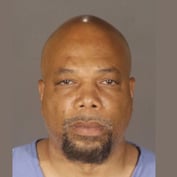A member of the National Conference of Insurance Legislators made an unsuccessful attempt here to persuade colleagues to back away from the new Interstate Insurance Product Regulation Commission.
Louisiana state Rep. Shirley Bowler, R-Harahan, La., introduced a resolution that called for NCOIL, Troy, N.Y., to withdraw support from the IIPRC, Washington, which was created by the Interstate Insurance Product Regulation Compact.
Members of NCOIL’s State-Federal Relations Committee rejected the resolution by a voice vote.
The National Association of Insurance Commissioners, Kansas City, Mo., has worked to set up the compact and IIPRC in an effort to streamline the process for filing insurance products and forms, by permitting states to funnel filings for many states through a single office.
States can choose whether to join the compact. So far, 29 states have signed up.
The IIPRC has an 8-member legislative committee that includes 4 legislators from NCOIL and 4 from the National Conference of State Legislatures, Denver.
The IIPRC also has committees representing consumers and industry.
IIPRC Executive Director Frances Arricale welcomed the NCOIL life committee vote on the support withdrawal resolution.
“We are very pleased that NCOIL continues to show support for the compact,” Arricale said in an interview.
Bowler argued during the life committee session that the IIPRC is a “real aberration of government,” that is neither a state nor federal body, but rather is “somewhere in-between.”
The IIPRC now has the powers of the executive, legislative and judicial branches of government, Bowler said.
“There is the mistaken notion that they are a super regulator,” Bowler said. “And, believe it or not, we gave [that power] to them.”
Bowler also raised the following concerns:








 March 06, 2007 at 11:51 AM
March 06, 2007 at 11:51 AM










